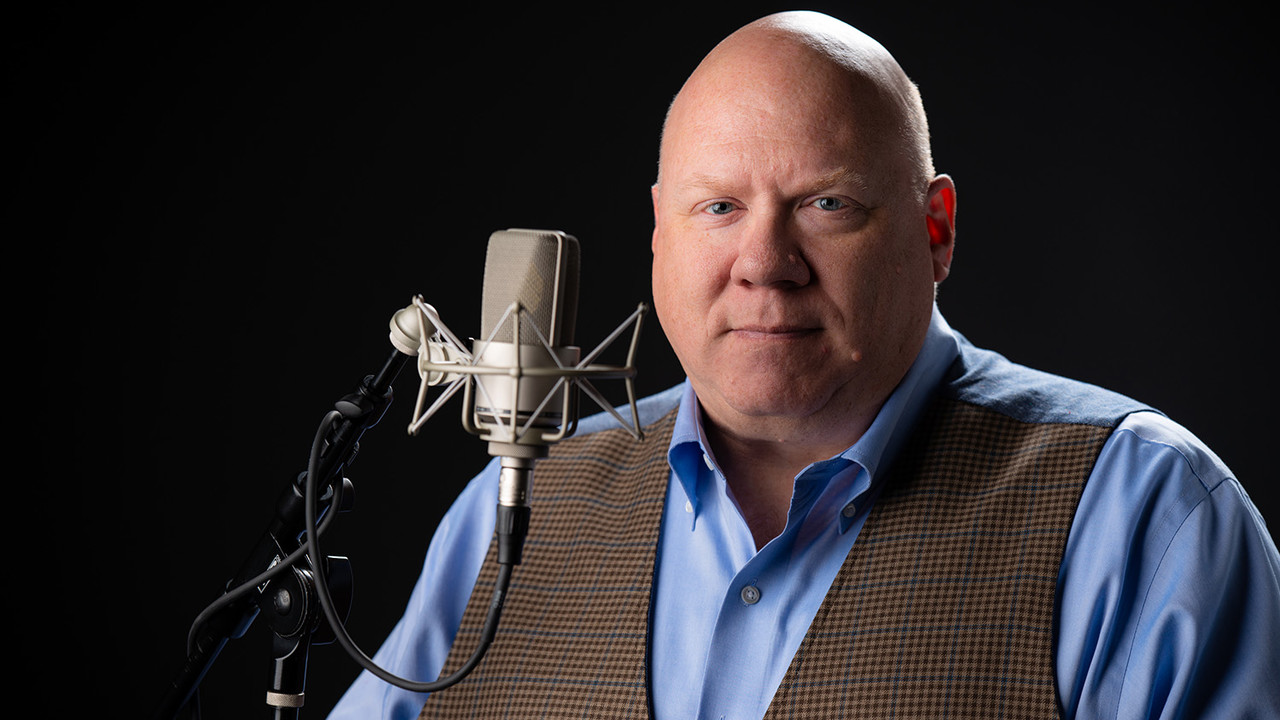
Filmmakers: Don't Make This Mistake!
I'm a geek. More specifically, I love anything having to do with the U.S. space program. Especially during the Apollo era. As proof of my geek-titude, I offer you this picture of me from 2006 sitting at a computer console in the Apollo Mission Operations Control Room at the Johnson Space Center in Houston, Texas. Look at those white legs! Those are the legs of a guy who would lock himself in a room with an Xbox and a month's supply of Hot Pockets if his wife would let him. But I digress.
The other day, I was watching a new documentary on Skylab. Probably one of the best documentaries I have ever seen on the subject. However, the narrator track sounded horrible! The narration itself was just okay but what really stood out was the quality of the recording. There was a very "plastic" sound to it; almost like he had used his kid's toy microphone. I watched the credits to see who Mr. Plastic was. I was shocked to find that, instead of a name, the filmmaker listed a user handle from FIVERR! Rather than hire talent that could transport the viewer through the film, this very talented documentarian had used cut-rate voice talent that heavily distracted from what would otherwise have been an extraordinary documentary.
To record VO back in the day, you had to assemble almost an entire production team in the studio ranging from directors, producers, writers, recording engineers, and voice talent to produce the perfect VO for your production. It was costly and time consuming but the quality was rarely compromised.
Today, computers and the Internet have made our lives easier in many ways and have brought industries closer to those who couldn't access them before. They have also inflicted what I fear to be irreparable harm to the voiceover industry. Producers and content creators on shoestring budgets can now logon to services like Voice 1-2-3, Upwork, or Fiverr and outsource their VO production to someone whose mom had always told them they have a nice voice and should "be on the radio."
The typical "voice actor" on Fiverr or these pay-to-play websites is using a cheap microphone - probably costing around $200-$300 - (sometimes without a preamp and plugged into a USB port on their computer) and is recording in his bedroom closet using Audacity (available for free on the interwebs.) The problem with that is if you don't know what you're doing, quality will inevitably suffer. Combine inadequate tools with inadequate skills and productions like the one I endured the other day become a reality.
The Internet and outsourcing of VO production isn't going away anytime soon. But one thing you can do as a production house is ensure that the voice talent you hire is as qualified as the rest of your production team. That's where I come in.
As a seasoned voice actor, one of the many things on which I pride myself is that I don't have a home studio. I have a pro studio - in my home. There's a big difference. This picture to the right? That's my "office." That's where the magic happens!
I have invested nearly $100,000 on computer equipment, software, preamps, an arsenal of high-quality microphones, and a beautiful climate controlled 6'x8' Gold Series recording booth from VocalBooth.com. This booth is used by artists like Mariah Carey, Lady Gaga, and House of Blues Studios. (By the way, you don't have to tell my wife how much I spent on equipment. That'll be our little secret.)
But all this equipment isn't worth anything without the talent and skill to use it. When I recorded my first voiceover, recording studios were still using magnetic tape. I have also spent nearly 40 years working in theatre, so I have decades of training as an actor in a multitude of genre. Today, I own a recording studio that primarily specializes in voiceovers. I have produced VO for commercials on radio, TV, and Internet, audio books, ADR, commercial demos, documentaries, video games, industrial videos, and IVR. My clients include NBCUniversal, Wolf Films, MTV, Saylors Brothers Entertainment, Cinemark, and 20th Century Fox Television just to name a few.
As a successful filmmaker, you don't skimp on your equipment. As a professional voice actor, neither do I. Check out my demos. Then contact me and let's work together to make greatness!




Transportation. Hazardous Materials. Logistics. Consultant to Three J's Safety.
5yI worked with Final Cut Pro before the market explosion of programs. Sound is key, and I would set “shotgun” mics also with body mics to capture sound, then go in and do all of the channel corrections to have a consistent sound level. I’m a believer in quality equipment. A VO/Actor will live and die by the equipment. Nice studio
Famicord Suisse SA
5yGreat point. So true
Owner | Positive Light Media | Our mission is to tell our clients' stories in a way that allows them to shine.
5ySo many things add up to help the story be well told, David, and you've done a great job of articulating how your talents contribute to the puzzle. In the world of DIY and cutting corners, this is a perfect example of "just because you can, doesn't mean you should." Thank you for this great post!